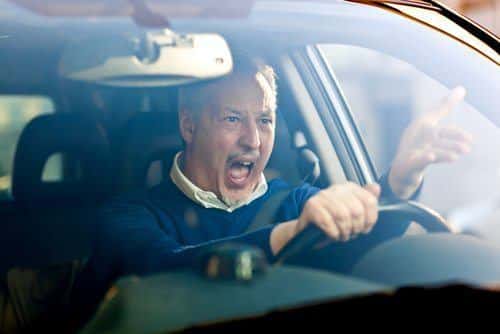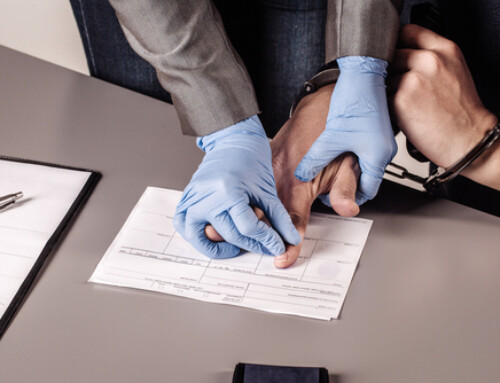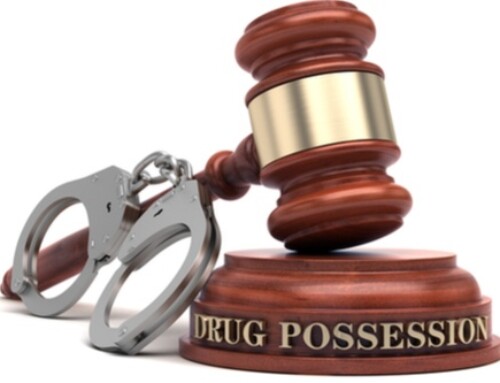As a criminal defense lawyer in North Charleston, SC, I have represented clients who have been falsely accused of road rage. I often see tempers flare while sitting for long periods of time in rush-hour traffic and, if you have spent any time on the road, it is likely you have come across road rage or aggressive drivers. It is difficult to be passive when someone purposely provokes you.
In this article, I will define road rage, offer national road rage statistics and explain the difference between road rage and self-defense.
What is Considered Road Rage in South Carolina?
The South Carolina Department of Motor Vehicles defines road rage:
Road rage is defined as aggressive or violent behavior stemming from a driver’s uncontrolled anger at the actions of another motorist.
Some examples include:
- Hitting their vehicle with your car
- Running them off the road.
- Pulling over, getting out, and engaging in a physical confrontation.
- Inciting your passenger(s) to fight the other driver.
- Using any sort of weapon to inflict harm on another driver or vehicle. Oftentimes, aggressive driving escalates road rage. Aggressive driving is an accumulation of illegal driving maneuvers, often resulting from emotional distress.
If you find yourself getting angry and upset on the road, try to notice if you are engaging in any of the following aggressive driving behaviors:
- TailgatingCutting others off
- Not using turn signals
- Mentally or verbally cursing other drivers
- Speeding
- Honking
- Flashing your headlights
- Brake checking
What are the National Statistics for Road Rage Incidents?
Foundation for Traffic Safety offered their statistics for 2016:
- Purposefully tailgating: 51 percent (104 million drivers
- Yelling at another driver: 47 percent (95 million drivers)
- Honking to show annoyance or anger: 45 percent (91 million drivers
- Making angry gestures: 33 percent (67 million drivers)
- Trying to block another vehicle from changing lanes: 24 percent (49 million drivers)
- Cutting off another vehicle on purpose: 12 percent (24 million drivers)
- Getting out of the vehicle to confront another driver: 4 percent (7.6 million drivers)
- Bumping or ramming another vehicle on purpose: 3 percent (5.7 million drivers)
Nearly 2 in 3 drivers believe that aggressive driving is a bigger problem today than three years ago, while nine out of ten believe aggressive drivers are a serious threat to their personal safety.
Aggressive driving and road rage varied considerably among drivers:
- Male and younger drivers ages 19-39 were significantly more likely to engage in aggressive behaviors. For example, male drivers were more than three times as likely as female drivers to have gotten out of a vehicle to confront another driver or rammed another vehicle on purpose.
- Drivers living in the Northeast were significantly more likely to yell, honk or gesture angrily than people living in other parts of the country. For example, drivers in the Northeast were nearly 30 percent more likely to have made an angry gesture than drivers in other parts of the country.
- Drivers who reported other unsafe behaviors behind the wheel, such as speeding and running red lights, also were more likely to show aggression.
What is the Difference Between Road Rage and Self-Defense in South Carolina?
For those of us who have been a victim of road rage, the feeling is unforgettable. You are being threatened by a 1-ton bully. Most of us react by changing lanes as not to escalate the incident. Your passivity did not work and the aggressor is now presenting a clear and present danger to you and your passengers.
The incident escalates and the driver intentionally ran his vehicle into yours. In South Carolina, your vehicle is considered your castle, thus, the Castle Doctrine would apply to this situation. The Castle Doctrine in South Carolina states that a person has the right to defend his/her home (and vehicle), with violence if necessary, when they feel threatened.
The South Carolina Legislature has defined the Castle Doctrine in S.C. Code Section 16-11-440(C) provides that:
[a] person who is not engaged in an unlawful activity and who is attacked in another place where he has a right to be, including, but not limited to, his place of business, has no duty to retreat and has the right to stand his ground and meet force with force, including deadly force, if he reasonably believes it is necessary to prevent death or great bodily injury to himself or another person or to prevent the commission of a violent crime as defined in Section 16-1-60.” Also, S.C. Code Section 16-11-450(A) provides that “[a] person who uses deadly force as permitted by the provisions of this article or another applicable provision of law is justified in using deadly force and is immune from criminal prosecution and civil action for the use of deadly force, unless the person against whom deadly force was used is a law enforcement officer acting in the performance of his official duties and he identifies himself in accordance with applicable law or the person using deadly force knows or reasonably should have known that the person is a law enforcement officer.” As such, the “Castle Doctrine” is not a “defense” to a crime like “self-defense” is.
Are There Road Rage Incidences in North Charleston, South Carolina?
…The victim applied his brakes to keep the Charger from driving too close. The driver of the Charger then pulled alongside the victim, rolled down his window and fired two shots from a pistol, according to a police report.One of the rounds hit the roof of the victim’s vehicle on the passenger side and the other shattered the passenger’s window, police said.
The victim had small cuts to his face, but he did not require medical attention, police said. He was able to provide officers with the license plate number of the other car, a report stated.
Much like your home, your vehicle is your castle. Many times, it is the victim of road rage who bears the brunt of a false accusation. If you have been accused of an incident of road rage, it is important to contact an experienced criminal defense lawyer. The Deaton Law Firm has the experience needed for a successful outcome.






